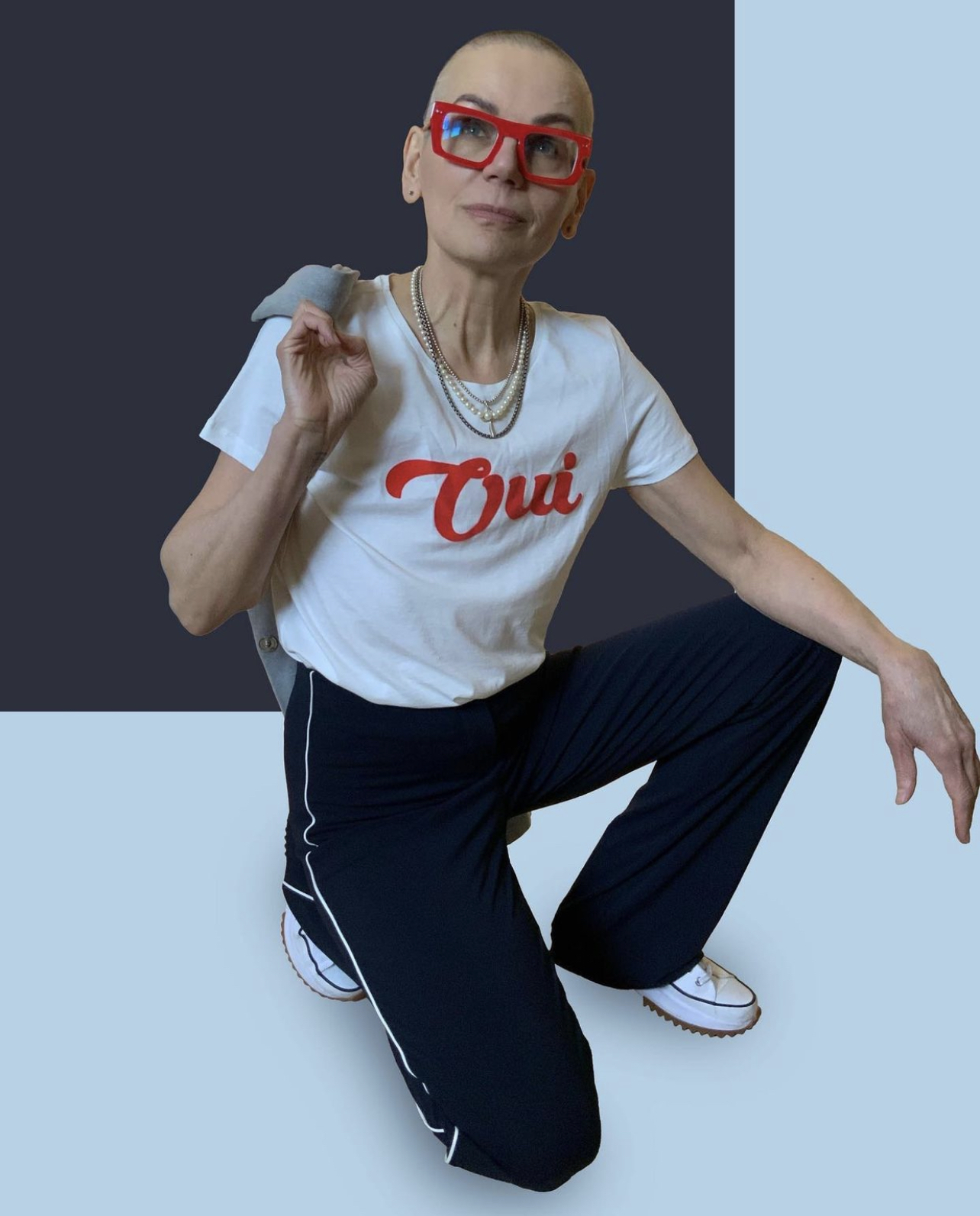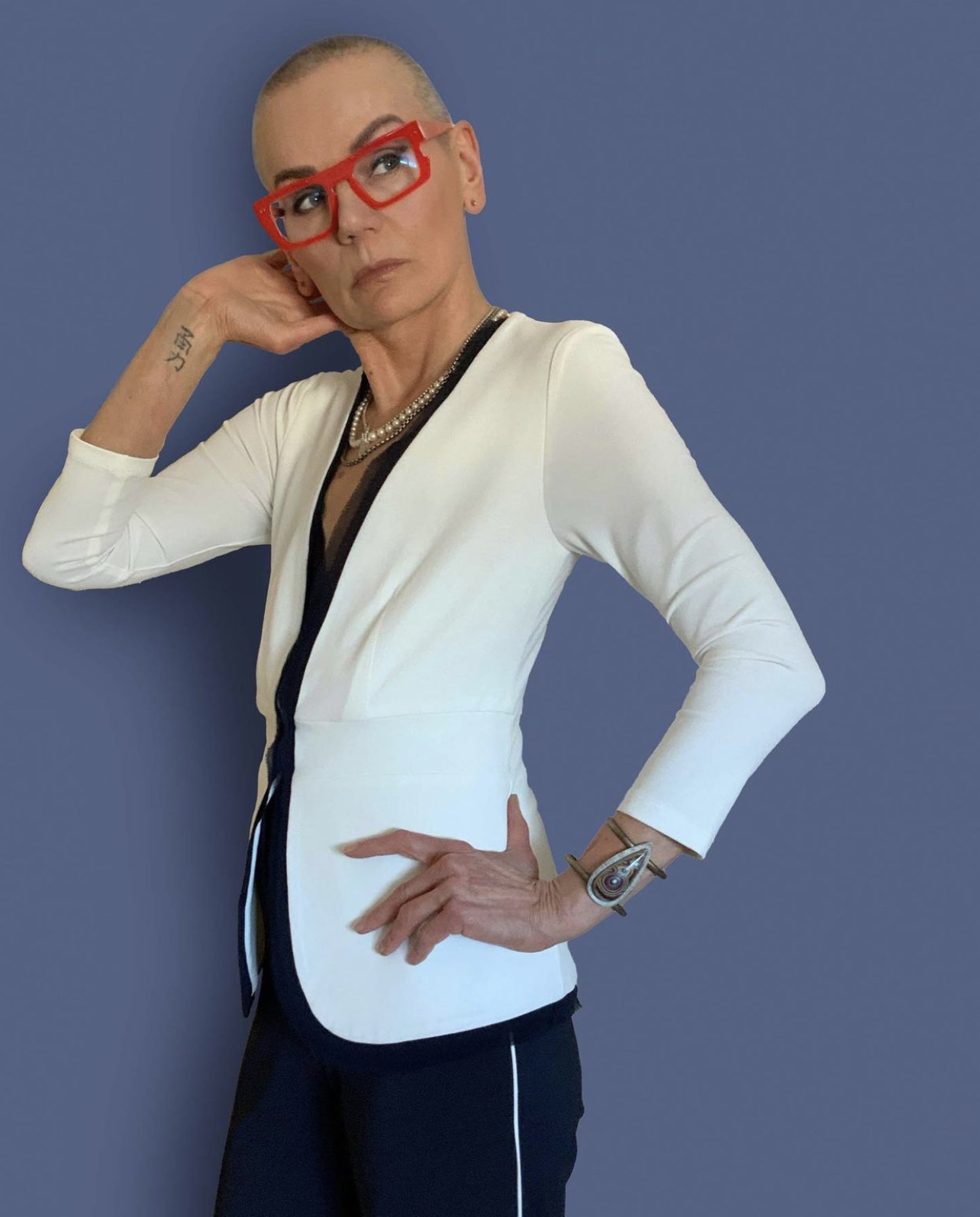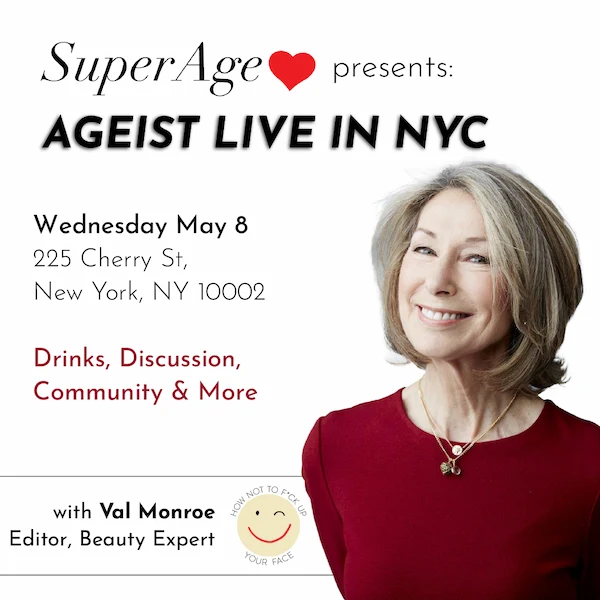The events of life change us. We don’t stay the same, which means the challenge is in the adaptation to the inevitable good, bad and otherwise events we accumulate with time. A bit of a Hallmark-card moment, but some pretty good advice that was once given to me when I was in crisis: If life is a river, it is best not to cling to the rocks in the middle, but rather to float forward in the stream. We are not who we were, not 10 years ago, not yesterday, and we will not be the same tomorrow.
When faced with big decisions, what are the values we lens them through? For some, it is fitting in, which is great for some people. For others, it is about taking an unexpected route more in tune with their own personal compass and, in the case of Tina, it was health that had to come first. There was pressure to normalize, something she was aware of, but when faced with one almost life-ending disease, she had zero tolerance for anything that could negatively impact health. She also got real about the language, the pleasantries we tell each other around the bad stuff that can and will happen to all of us. Her advice to those around her: listen more and speak less. Life happens, often it’s not fair, but it is always amazing when we listen.

How old are you?
A vibrant 65. OMG, I am a senior! What does that even mean? I know at 20 I thought life was over at 45. Things are changing!!!
Where are you based?
I live in a small city in Western Canada.
What is your work?
I am a full time tenured instructor of Fine Arts. I am also a professional artist. And apparently an author, although I always say I am an artist who accidentally wrote a book.
When did you first get diagnosed with breast cancer?
My first diagnosis was in 2011. It was a Stage 2B diagnosis and required two surgeries, chemotherapy and radiation. At this point I chose to have a lumpectomy. I really had no idea this would only be the beginning.
“I wanted to read something that talked about all of it: the good, the bad and the really ugly. So I wrote the book I wanted to read”
What was your journey back to health like after your diagnosis?
My journey back has been far more complicated than I ever dreamed and I am still in it. After the first diagnosis something that helped me a lot was documenting it in both my sketchbooks and my daily writing. I never intended to actually publish about the experience, but, I was quite frustrated by the books available at the time. They seemed to be two types: one was “cancer was a gift” and the other was “how to have cancer.” First: not a gift. A gift comes with a receipt and you can take it back. And what did I know about having cancer? After all, I had only done it once. I wanted to read something that talked about all of it: the good, the bad, and the really ugly. So I wrote the book I wanted to read. It is called Not in the Pink and it went on to win several awards. It was a huge part of my recovery to tackle a project of this size. And I was done! Right??? Except I wasn’t.
I was diagnosed again in 2015 on the other side. Stage 1. I was flattened emotionally. It was caught very early and I was assured that all would be well. I did briefly consider having a double mastectomy but decided to have another lumpectomy followed by radiation.
Unfortunately, what followed was a literal dive into anxiety and PTSD. Every twinge, imagined lump sent me into a frenzy of “what if.” After countless mammograms, ultrasounds, CT scans, biopsies, I called it done. I investigated, seriously this time, having a double mastectomy. I already knew I was not a good candidate for reconstruction with my own body fat. Looking at my slim body the plastic surgeon told me she could make “one.” She was not amused by my saying, “Do I pick my favorite one?” She heavily pushed implants. But I had already joined a number of private Facebook groups of women who made the decision to simply go flat. I was blown away by the strength and beauty I saw on those sites. I suddenly had a support group of women who had made this decision. Again I saw it all: the best and the worst. I also realized that many women are never told about this option. It is an add on. Oh, you could go flat, but you don’t want that. Well. Yes. I did.

“I was blown away by the strength and beauty I saw on those sites”
Where are you now in your journey?
I am two years out of my double mastectomy without reconstruction. I am healing well and my anxiety is much less. I would love to say it is gone but, unfortunately, I was diagnosed with a rare and incurable form of T-cell lymphoma. They think it was probably caused by treatment but they really aren’t sure. After being in treatment for three months it is under control. The future will bring what the future will bring.
What was the process of embracing how your body had changed after your double mastectomy?
I did have a bit of an advantage in that I did not have an active diagnosis at the time of my surgery. It gave me time to explore my options. My designer husband photoshopped my breasts out of a photograph allowing me to see what I would look like. Many women have all of these decisions about treatment options and surgery thrown at them in a few weeks or days. I could and did take my time.
Even though I thought I had everything in place for a successful result the toughest part was removing the dressings after surgery. I had no idea if I had a good closure or not. During my search for solutions I had come across a number of women who had terrible surgical results: leftover skin, lumps, bumps, crooked scars. Some of it was enough to make you weep. Some were fantastic. I took both kinds of images to show my surgeon. Although he was unhappy with my choice to not reconstruct he did what I asked. The relief was enormous when I discovered that I had a neat flat closure which, as of last year, now has an actual surgical designation, aesthetic flat closure (AFC).
“We should not be pressured with fitting into a society obsessed with women’s breasts. We should be obsessed with the health of the woman”
Oddly, my meltdown happened when I was removing my steri strips several days later. As tears streamed down my face I realized that my body was irrevocably changed. I was not mourning my decision but rather everything that had happened. Of all of the choices they offered, the one thing they could not give me was what I had before.
But what was I going to do? I threw my shoulders back, my head up and straightened my spine. I thought I would start small. I started an account on Instagram. It was mostly about dressing my own newly flattened body. But, also about life after cancer, and the issues behind having a DMX. In starting this account I helped to heal myself. I said that if I could help one woman feel good about herself then I had accomplished what I wanted to do: normalize flat. We are no less women for not having breasts.
We need visibility to educate and empower women. We should not be pressured with fitting into a society obsessed with women’s breasts. We should be obsessed with the health of the woman.
“I led a very healthy lifestyle before my diagnosis and I still do”
Has your approach to health changed since your diagnosis?
This has been a mystery to my oncologist as he tells his patients to live like I do. I led a very healthy lifestyle before my diagnosis and I still do. I work out, I eat almost exclusively organic, I drink very little, I do not smoke, I do not eat red meat, I am celiac so no gluten and I am not overweight. I did make minor changes: supplements, vitamins that I added on the advice of a homeopath. I try to be kinder to myself and the world.
Genetically, I did test as having no known breast cancer genes. My oncologist feels that I do have one, it is simply not one they have discovered.

Why did you choose not to have reconstruction?
The push for implants seems to be wrapped around the idea that your mental health will suffer if you don’t look like what “normal” women are supposed to look like. We are told they are completely safe. But, there are many complications: they have to be replaced every 5 years, they leak, they rupture, they can develop mould and can even cause a rare kind of lymphoma. Some women suffer from Breast Implant Illness, which some medical professionals say does not exist. I have no issue with women who make the decision to reconstruct, by any means, but please, for your own sake, make sure that you have all of the information before you decide what to do.
I simply wanted to take the quickest route back to health.
Flat and Fabulous
Talk to us about “flat and fabulous.”
I loved that expression. For me it was about acceptance. About having the healthiest body I could with no more surgeries or treatments. I saw these beautiful, strong, defiant images of other flat women and I saw myself in them.
What do you feel when you see photos of yourself now?
I have had a lot of photos taken in the last two years. I am comfortable in my skin and with the way I look. Would I like my pre-cancer body back? Sure. I’d also like my hair back because they promised me it would come back looking better than ever. It came back patchy and thin and awful. I buzz it because it feels like my choice. While I am making wishes, I’d also like a million dollars if anyone wants to send it to me.
But, the photo that hit me the hardest was the last photoshoot I did. When I saw the image the photographer took of me in the lavender robe I was literally gobsmacked. Who was that woman in the photo? It can’t be me. This woman was glowing, powerful and owned the world. Can you aspire to be your own image? Lol!
What People Get Wrong About Cancer
What do people get wrong about cancer diagnosis and recovery?
Most of it. My biggest issue is with the language used around cancer. Some of the very common things cancer patients hear all of the time:
Oh, you will be fine — you just need to stay positive. (The last time I checked this was a disease not an attitude.)
Great, you get new boobs! (Oddly, I do not remember wanting them.)
My aunt/sister/mom/next door neighbor/pastor’s wife/whatever had breast cancer and she died. (Thank you. I really needed to hear that while I am fighting for my life.)
At least you have the good cancer. (I was unaware there was a good kind.)
God never gives us more than we can handle. (I beg to differ as anyone living in a war zone can tell you.)
This is a life lesson. (It is? I’m fairly certain the only thing I learned was don’t get cancer.)
I could go on and on. As soon as you use any of the existing tropes you shut down the possibility of honest dialogue. But the bottom line for me is: when someone you love is diagnosed, stop talking and try listening.
“When someone you love is diagnosed, stop talking and try listening”
My second least favorite is the idea that you have treatment and return seamlessly to your life. You are changed. It is a grief that will live with you forever. It won’t always be forefront, sometimes it will shuffle along behind you, sometimes it waits behind cupboard doors only to spring out at you at the most unexpected times, sometimes it will be so far behind you that you can barely see it. But it will never be gone. I have a visible reminder every day. I had an amputation to save my life. None of this means that I don’t have a good life. It simply means I have a different one. Unlike many people, I am hyper aware of my own mortality and how fragile can be. However, I chose to live in the light. Maybe the light is sweeter because there is no light without darkness.
Who is your hero?
I will pass on that one as I have many.
What are your 3 life non-negotiables?
Be kind.
Be authentic.
Surround yourself with people that are the same.
Connect with Tina:
Instagram
Book
Main Image by Tina Martel
Secondary Image by Noelle Mirabella Photography
LEAVE A REPLY
The ideas expressed here are solely the opinions of the author and are not researched or verified by AGEIST LLC, or anyone associated with AGEIST LLC. This material should not be construed as medical advice or recommendation, it is for informational use only. We encourage all readers to discuss with your qualified practitioners the relevance of the application of any of these ideas to your life. The recommendations contained herein are not intended to diagnose, treat, cure or prevent any disease. You should always consult your physician or other qualified health provider before starting any new treatment or stopping any treatment that has been prescribed for you by your physician or other qualified health provider. Please call your doctor or 911 immediately if you think you may have a medical or psychiatric emergency.



Thank you, for saying it like it is.
Great story, much to think about. Good luck!
Thank you for this against the grain perspective and get-real attitude. I am 62 and went through breast cancer almost 20 years ago. What was affected the most was my mental stamina and future hope. Cancer-induced depression and crazy, hormonal swings seemed to be nowhere in doctors’ instructions, upbeat magazine articles or support groups. I dreaded October with its blanket of pink, and the term survivor thrown around like I had suddenly gained super hero status for just making it through cancer. But the take down changed my life, and set me on a path of self discovery and change that brought me to a life today that I wouldn’t have gone after in my previously safe, unexplored world. Thank you for your honest fight and your strength in living it your way.